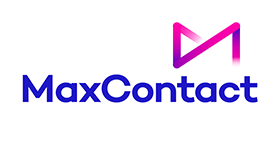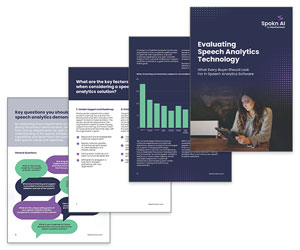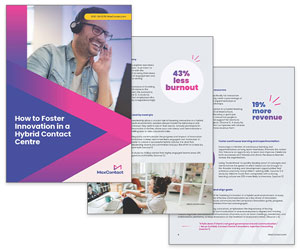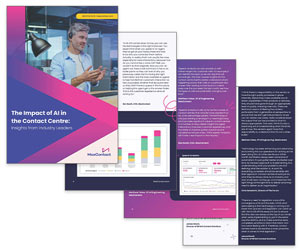In the 1970s, big players in the growing computer industry coined the phrase FUD.
It stands for Fear, Uncertainty and Doubt, and it’s what companies like IBM tried to sow in the minds of customers in relation to plucky young upstarts like Microsoft and Apple.
It’s fair to say that the FUD strategy didn’t work too well in that particular instance, but it’s still used today whenever a large enterprise wants to scare customers away from a smaller and often more nimble competitor.
FUD for thought
It’s easy to see FUD’s appeal. When an agile new company comes into the market with new ideas and innovations, it can be hard to argue with their technology, which is often leading edge.
So FUD attacks ignore the product, and focus on the business. Will a smaller independent software vendor (ISV) have the resources to support your solution? If they’re not widely known, can you even trust them? Will they even be in business a year or two down the line?
Get your FUD attack right and the flipside hardly needs to be mentioned because it’s staring everyone in the face. With a big, long-established market leader you get security, longevity and a safe pair of hands.
The FUD attack works because nobody ever got fired for taking the safe option.
The problem is that the safe option is often the wrong option for businesses (small or large) that want the best technology combined with the best support.
ISV vs Enterprise
We come across the “small supplier” problem a lot. Potential customers will ask why they should go with a smaller company over a big name contact centre supplier. Isn’t it safer to go with the big behemoths?
In response, we ask them why they think a large provider is better for them, and respond on a point-by-point basis. It tends to go something like this…
A bigger supplier will have more resources
They will, but most of those resources will be pointed at large enterprise clients. A common complaint from customers is that they were forgotten by the large players. For small and medium sized businesses using enterprise providers, it can be difficult to even get an engineer on the phone.
That’s because enterprise providers are focused on enterprise customers. Or as one customer put it: “At 250 seats we thought we were big enough to have some influence, but we came to realise that we were little more than a rounding error on the provider’s P&L.”
A bigger supplier will have more and better skilled staff
It will certainly have more staff, but SMBs are likely to spend most of their time in conversation with non-specialist support staff with limited technical knowledge.
The right technical people definitely exist, but getting to them can be a time-consuming and frustrating undertaking, especially for smaller businesses. In large providers, departments are siloed and staff roles have strict limitations. The person you’re talking to is likely to be competent in their area of work and no other.
By contrast, your small business isn’t an afterthought to an ISV. If you have an issue, you’ll get to the right people straight away. Every employee is aware that, when your organisation wins more business and adds more seats, we win too. We have a vested interest in your success.
As to skills, with an ISV you’ll be dealing with people who are closer to the heart of the business, who have an in-depth knowledge of the entire organisation. If they need an extra pair of eyes on your problem, they’ll call in an individual, not pass you on to a different department. It means issues get sorted more quickly and more completely.
A smaller provider might get bought out
While that’s true, it’s also unlikely to affect the customer experience. Businesses get bought because they’re successful, and why change a winning formula? It’s also the case that when specialist investors take a stake in a company they bring business nous, but are happy to leave product development and customer service to the people who do it best.
And things can change just as easily at large providers, especially when shareholders want better returns. For example, one enterprise recently outsourced its entire first line support services to Romania. It’s a move that will look good on the balance sheet but might not seem such a great idea to an SME with a system outage.
Large providers listen to their customers more
When you deal with an ISV, you’re dealing with the people who make the product. We’re agile enough to listen to what you have to say and take suggestions on board. In effect, your feedback becomes part of our product roadmap.
When you go with a large provider, in many cases you won’t be dealing with them directly at all. Instead you’ll be dealing with a reseller that operates its own support team and is several steps removed from the development of the software. You can feedback all you like, but the team that develops your solution will likely remain entirely ignorant of your existence.
The Takeaway
The takeaway here is that while nobody should be fired for choosing the safe option, nor should they be promoted for missing out on a solution that is a better fit for their business.
Innovation in contact centre software is often concentrated in ISVs where industry expertise still permeates from top to bottom. These businesses build great relationships with customers, go the extra mile, and strive to create mutual success, because it’s in their interests to do so.
In an enterprise environment, SMBs are too easily ignored. Organisations that feel undervalued by their provider should remember that great things really do come in small packages.
This blog post has been re-published by kind permission of MaxContact – View the Original Article
For more information about MaxContact - visit the MaxContact Website
Call Centre Helper is not responsible for the content of these guest blog posts. The opinions expressed in this article are those of the author, and do not necessarily reflect those of Call Centre Helper.
Author: MaxContact
Published On: 19th Nov 2021 - Last modified: 23rd Nov 2021
Read more about - Guest Blogs, MaxContact






 MaxContact is customer engagement software that goes above and beyond to build smarter customer experiences. Our platform is packed with powerful features, accessible for businesses large and small, and ensures organisations can operate compliantly.
MaxContact is customer engagement software that goes above and beyond to build smarter customer experiences. Our platform is packed with powerful features, accessible for businesses large and small, and ensures organisations can operate compliantly. 






























